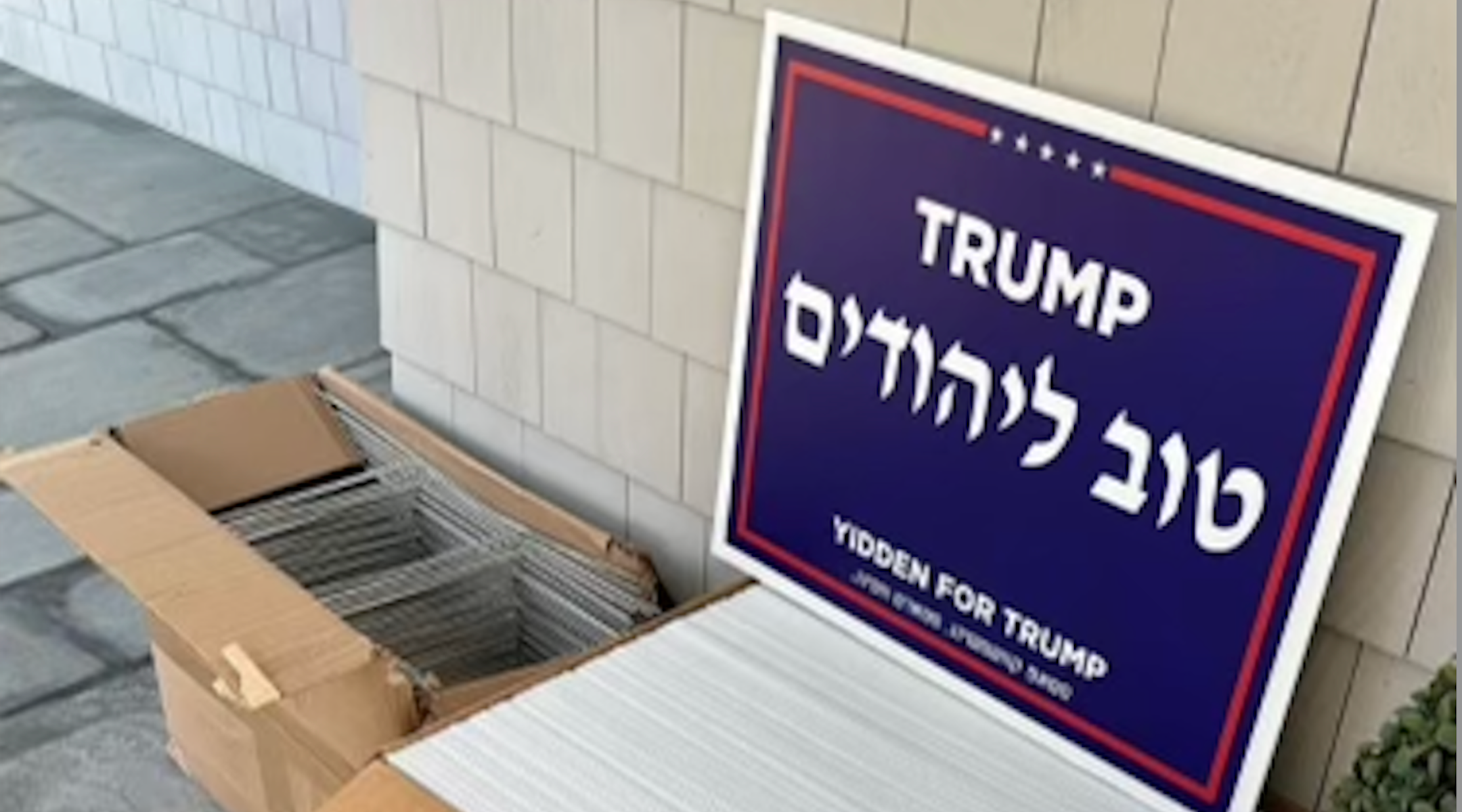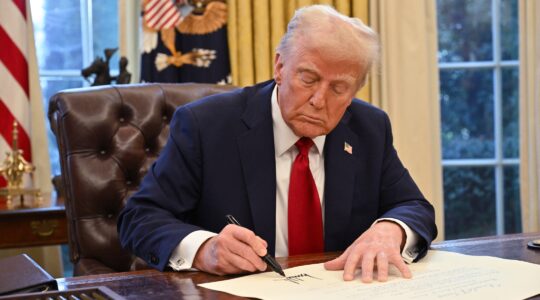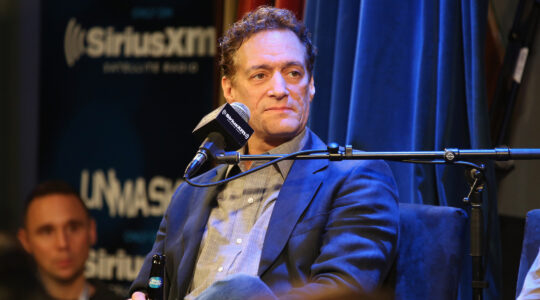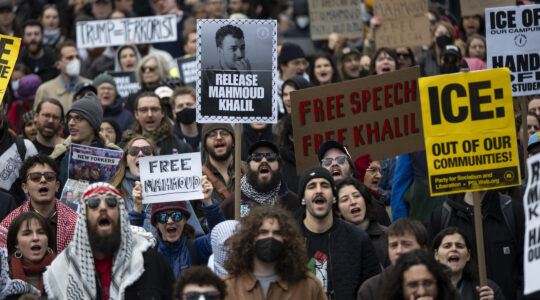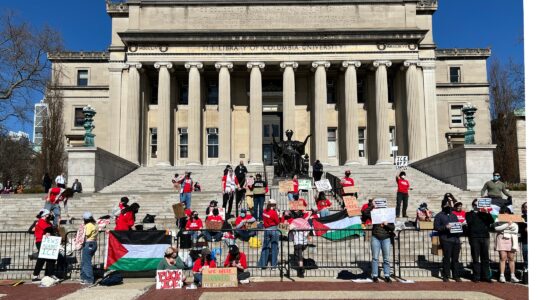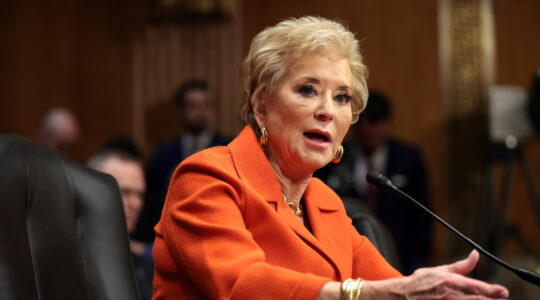This article was produced as part of JTA’s Teen Journalism Fellowship, a program that works with Jewish teens around the world to report on issues that affect their lives.
Hadar Zohar couldn’t vote in this year’s presidential election, but the 15-year-old from Miami knew who had her support.
“I trust Trump,” Zohar said. “Trump has been saying that he is going to help Israel, and that he is going to bring our hostages back. I trust him.”
Zohar, an Orthodox Jew who attends a Jewish day school, also suspected that some members of her community — and even her own family — might have had a different attitude.
“From what I’ve seen, the older generations are more Democratic, and my friends and peers around me are more Republican,” Zohar said.
Zohar was observing the results of a dramatic shift that has played out among Orthodox Jews over the last several decades. While a significant majority of American Jews continue to vote for Democrats, support for Republicans among Orthodox voters has skyrocketed in recent years, from an estimated 25% in 2000 to what appears to be near-universal support for Donald Trump in this year’s presidential election.
That means in many Orthodox Jewish schools, teens saw widespread backing for Trump while understanding that their grandparents may not have felt the exact same way.
Emily Silver, 15, from Englewood, New Jersey, said she thought the majority of her classmates at her Modern Orthodox school were “pro-Trump,” though she said she wouldn’t be surprised if supporters of Kamala Harris, the Democratic nominee, were “quieter in voicing their opinions.”
In her own family, she knew that her grandfather held views typically associated with the Democratic Party.
“My grandfather is a doctor, and he truly believes that healthcare should be free for everyone,” she said.
In contrast, Silver and many of the teens interviewed for this story said Israel and issues related to the current Israel-Hamas war were top of mind for them during the election season.
“I think he [Trump] is going to crack down on the college campuses and on antisemitism in general,” said Keren Kronzon, of Tenafly, New Jersey. “He’s very strong regarding that.”
Silver said the belief that Jews have a right to a homeland in Israel is a major part of her Jewish identity. She said she believes that Trump will help bring the war in Israel to an end and free the hostages trapped in Gaza.
But she said she hoped that the safety of American Jews would not be compromised under Trump’s second term as president. “Everyone deserves to feel safe in their homes, especially the Jews,” Silver said. “We have Israel, but we also have a home in America. I just hope everyone in America feels safe.”
For all the Orthodox support for Trump, the majority of Jews continued to vote Democratic in the 2024 election. Polls showed Jewish voters supported Kamala Harris by somewhere between 63% and 71%.
For some Jewish teens, Trump’s campaign and election have triggered fear about the consequences of his presidency.
“Kamala Harris could have done well as president,” said Garvi Gilboa, a 16-year-old from Pittsburgh. Gilboa, a Reform Jew, identifies as a Zionist, as well as an advocate for the rights of women, the LGBTQ+ community and religious minorities. He believes that Israel has a right to defend itself but thinks that Trump’s “hands-off” foreign policy will create more enemies than friends for the United States — but that wasn’t the biggest issue for him during the campaign.
“One of the things I’m most worried about is being able to practice my faith,” said Gilboa, alluding to Trump’s record of having courted and earned support from Christian nationalists, some of whom want to see a return of state-sponsored prayer in schools, fiercely oppose abortion and LGBTQ+ rights, and favor ending protection from religious discrimination.
The difference between many in the Orthodox community and other Jewish voters may come down to priorities.
According to a Nishma Research poll of 1,296 Orthodox voters, conducted before the election, Orthodox Jews rank Israel and antisemitism as more critically important issues than do other Jewish voters.
For Jewish voters as a whole, according to Jim Gerstein of the Democratic-affiliated political consulting firm GBAO Strategies, “the most important issue, regardless of age, was the future of democracy [53%], followed by abortion rights [38%].”
Gerstein said his firm’s data found that the conflict in the Middle East and antisemitism remain “third-tier” issues among Jewish voters on the whole, though he noted a slight increase in their significance recently. He said older adults tended to place a greater emphasis on the issue of antisemitism when compared to younger adults.
Margeaux Brifgel, 16, from Laguna Beach, California, offered a case study in how the broad trends could play out in an engaged young Jew.
Brifgel said many of her Orthodox friends are “overjoyed” at the thought of Trump’s return to office. She said she saw Trump as the preferable candidate in handling the Israel-Hamas conflict but concluded that a Harris presidency would have better ensured her safety as a queer Jewish woman.
“I do feel that I would have voted for Kamala Harris,” Brifgel said. “I would feel very conflicted, though, because I would be picking between two parts of myself.”
JTA has documented Jewish history in real-time for over a century. Keep our journalism strong by joining us in supporting independent, award-winning reporting.
